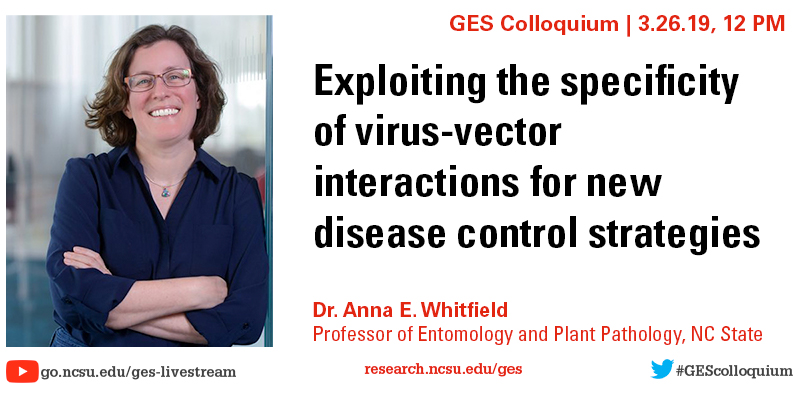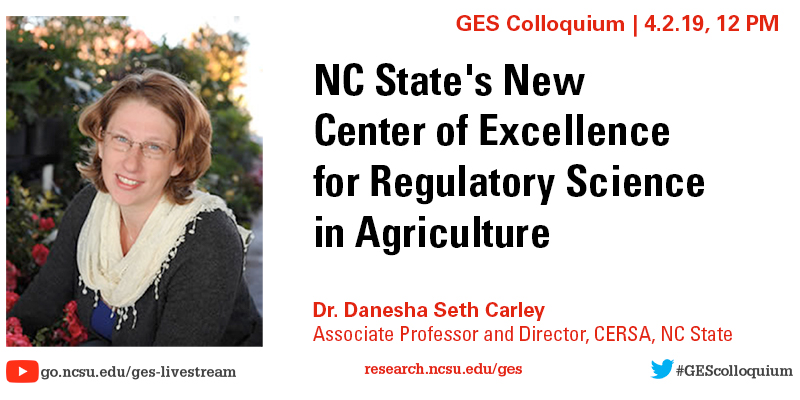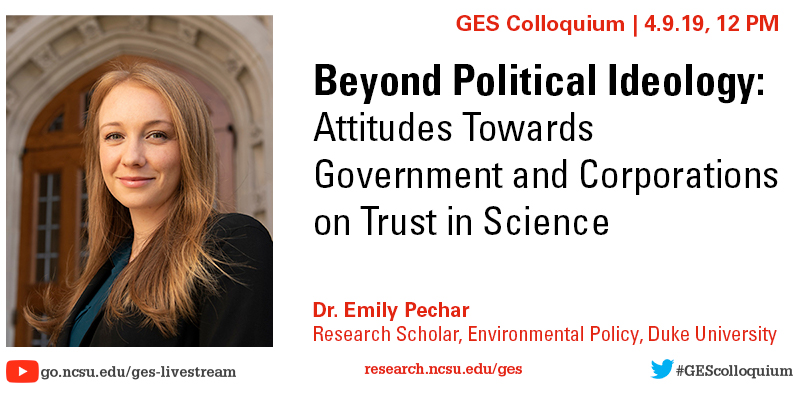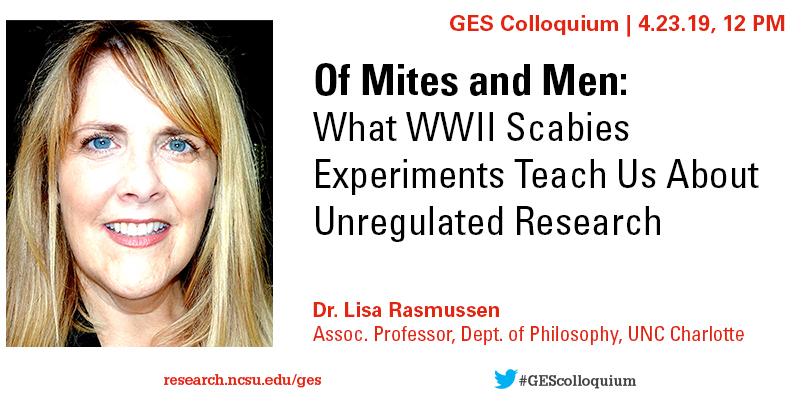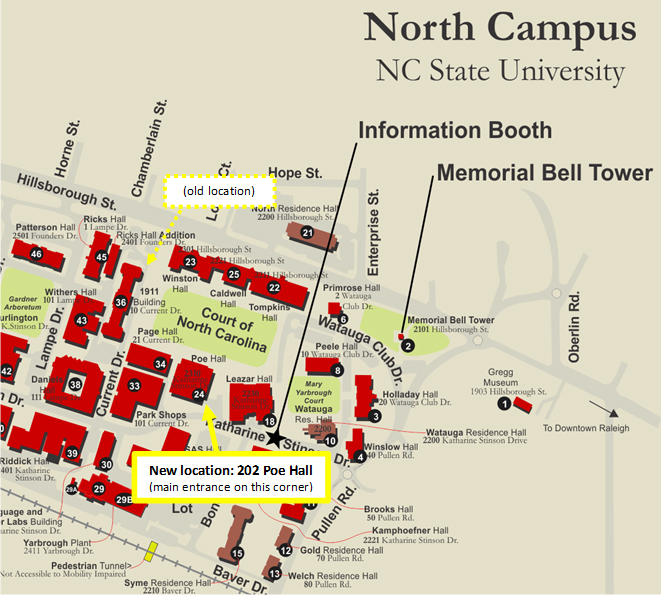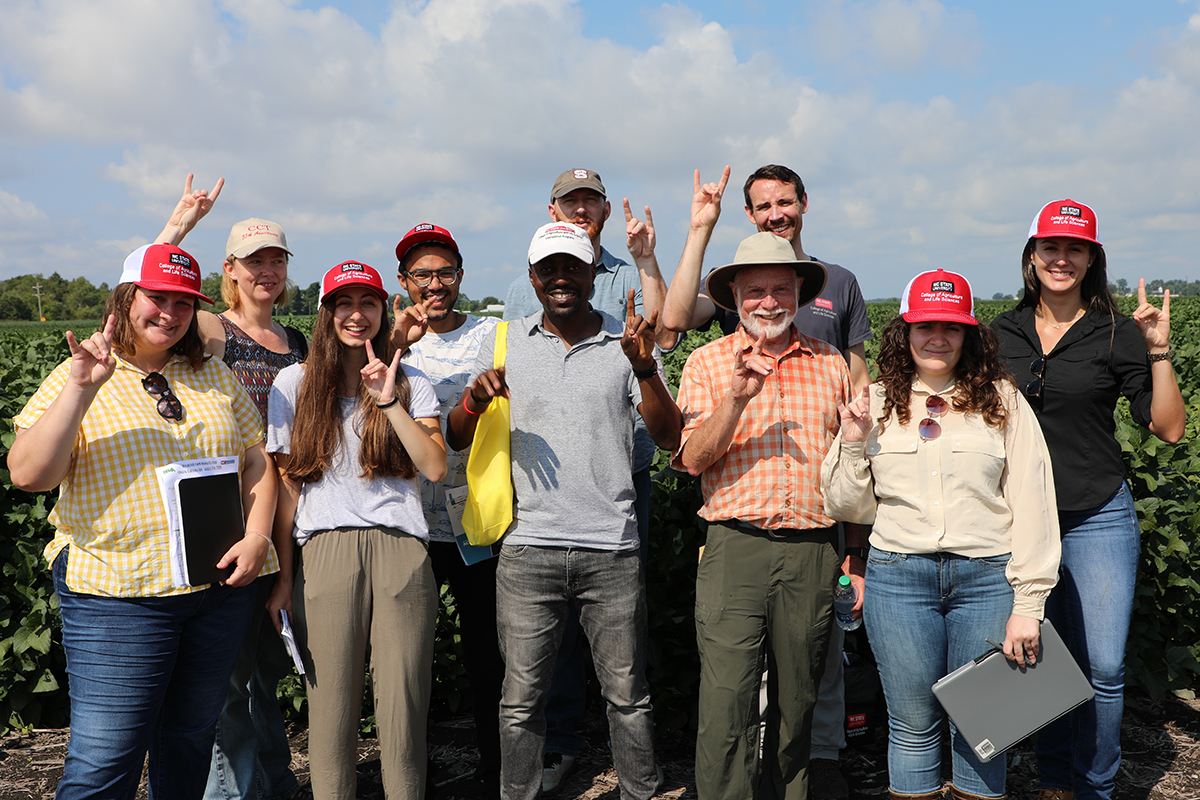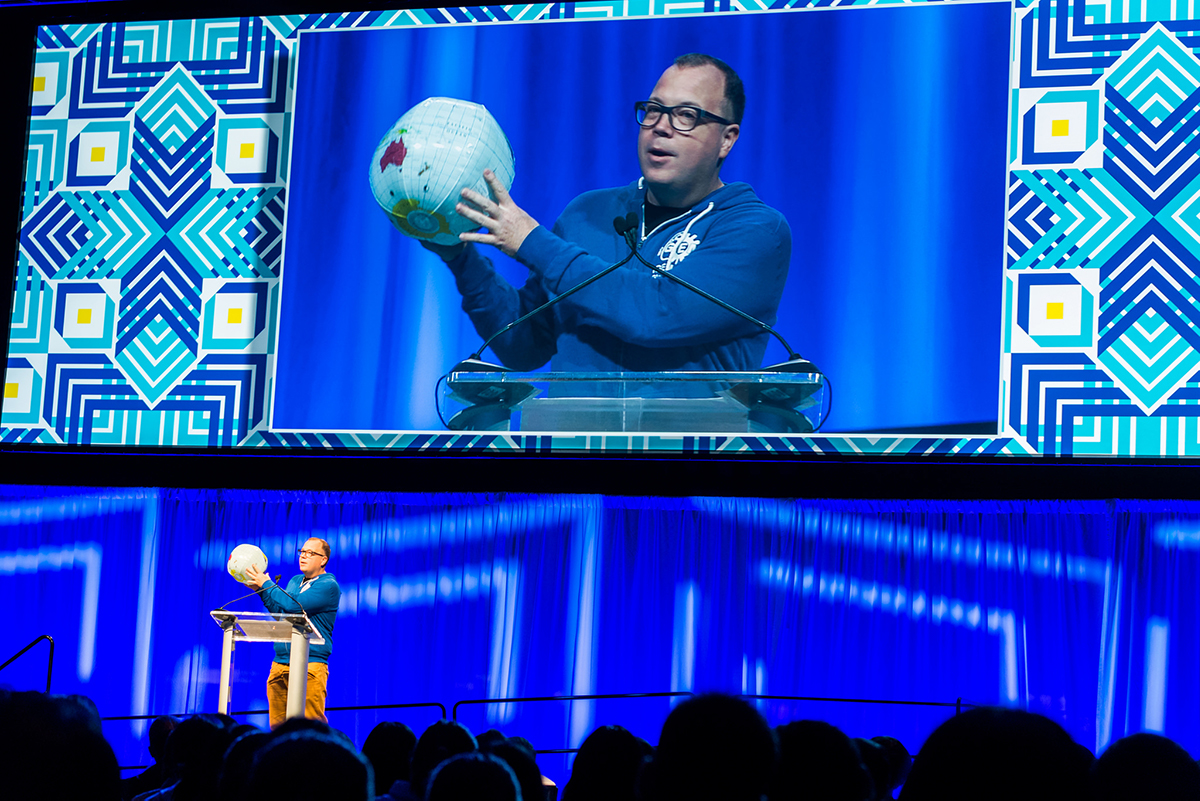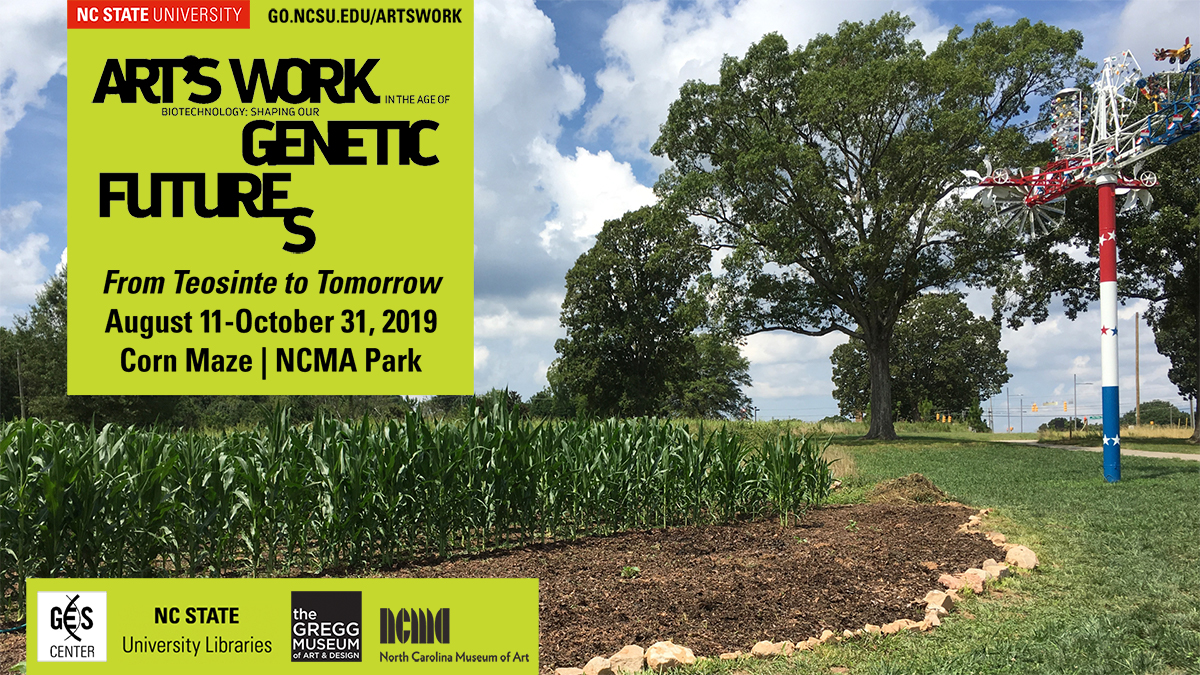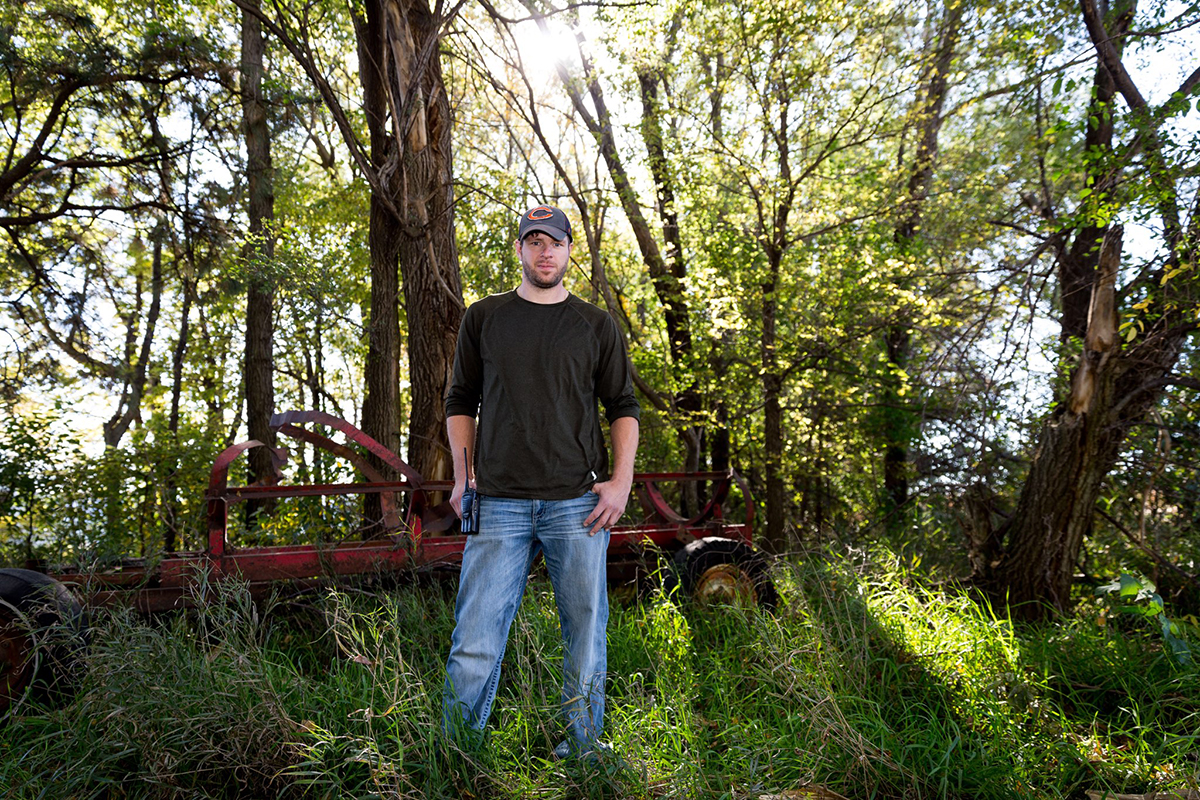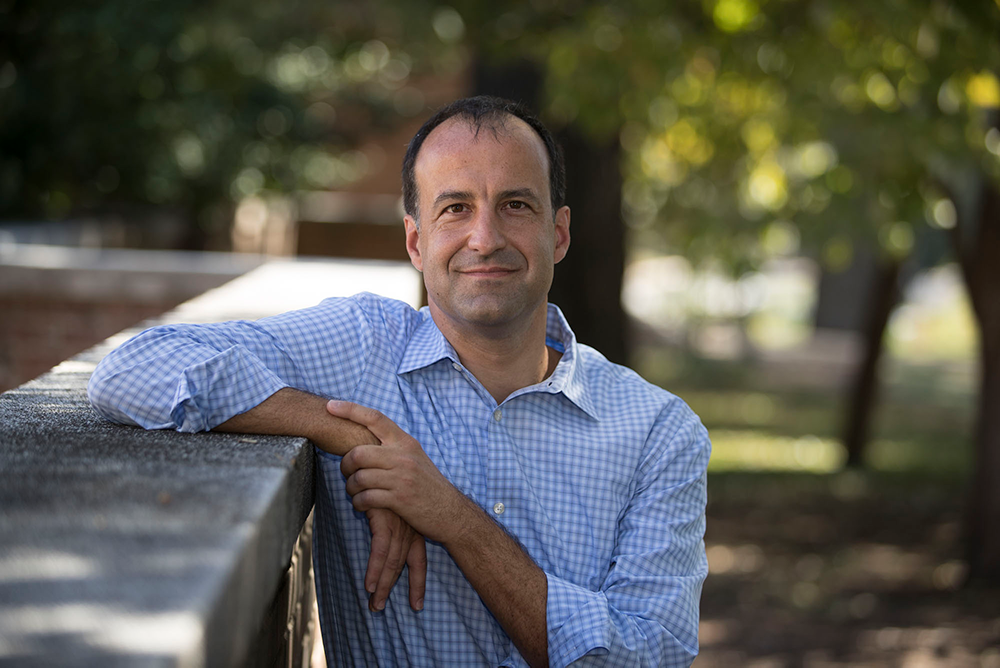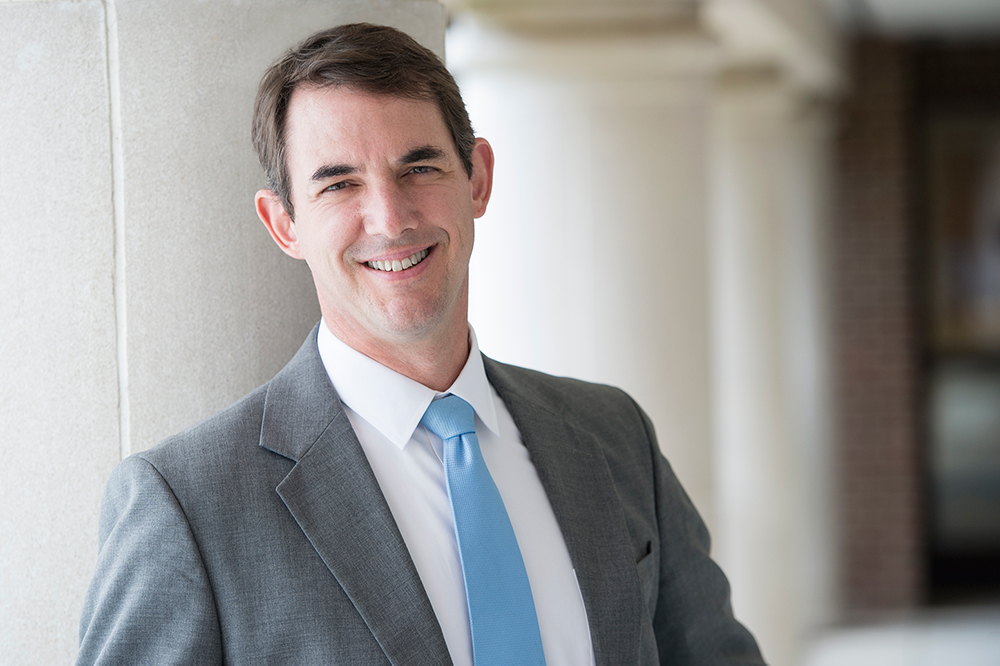GES Colloquium, 4/2/18 - Danesha Carley, NC State's New Center for Excellence in Regulatory Science in Agriculture | Currently, there is a lack of university programs in regulatory science specifically related to agriculture. There is a need for a new program that can provide undergraduate, graduate, and continuing education opportunities in regulatory science, and also provide a forum for the advancement of regulatory science in agriculture. With the importance of regulatory science for innovation in agriculture, and the leadership position that NC State has established in the arena of agricultural advances and technology, we are forming a Center of Excellence for Regulatory Science in Agriculture (CERSA).
